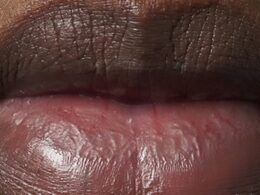A Parent’s Guide to Teething: Everything You Need to Know
You think your child has begun teething. It’s hard to know where to start! Here is everything you’ll need to know from identifying the beginning stages of teething all the way through how to care for those first budding teeth.
When Do Babies Start Teething
Most babies start teething between the ages of six and eight months old and develop a full set by the age of three. Although, it is not unheard of for a baby to start teething as early as 2 months old or as late as 14 months old. While no teething until 14 months may seem like a long time, this is actually normal despite it not being very common.
On the flip side, some babies are born with teeth; this is rare and affects 1 in 2,000 babies. These teeth are known as natal teeth. While this is usually diagnosed through an oral inspection done by your physician, it can be identified usually as weak-rooted, small, yellow or brown teeth present at birth. Once identified, your oral expert will be able to plan the best course of action.
How to Know Your Baby is Teething
Common signs the teething process has begun are excessive drooling, inflamed gums, irritability, loss of appetite, disrupted sleep, a rash around the mouth, ear rubbing, increased biting, and gum rubbing. You’ll likely notice a large shift in your baby’s overall temperament.
Are Diarrhea and Fever Common Teething Symptoms?
There is a common misconception that diarrhea and fevers are symptoms of teething. This is technically false. When your baby is teething their immune system overall is weakened, which leaves them more prone to sickness. While it may seem there is a direct correlation due to its frequent association, ailments such as diarrhea and fever are separate conditions and should be treated as such.
Do Babies Sleep More When They’re Teething?
While it is much more common for babies to lose sleep, some parents have reported their kids do sleep more during particularly severe teething episodes. There are no formal studies that confirm this, but it is more likely tied to sleeping associated with the overall rapid growth your baby is going through. If your baby is sleeping excessively it is important to contact your pediatrician to rule out other more concerning causes.
How to Help a Teething Baby
One of the worst feelings in the world is feeling like you’re unable to help your child. Luckily, there are a few ways you are able to help your teething baby— from massaging their gums to over the counter medication. Here are some steps you can take to help:
Massage the Gums
Massaging your baby’s gums can help relieve some irritation and inflammation. This can be done with thoroughly clean hands by gently applying pressure along your baby’s gums.Your baby can also use textured teething rings to create a massaging affect as well.
Help Cool Down the Gums
There are a few different ways to help cool down the gums in order to decrease inflammation and pain associated with teething. Grab a clean washcloth, dampen the cloth in water, and put it in the fridge. Once the washcloth has had time to cool, fold it allowing your baby to chew on it.
Using cold fruits or milk popsicles can also help soothe the gums without introducing any foreign toxicities to your baby. This is a nice option if your baby has already been exposed to solid foods.
Lastly, cooling down teething toys in the refrigerator can help numb some of the pain your baby is experiencing. It is important to stay away from teething toys filled with any kind of liquid or gel that can leak if punctured. When it comes to any of these methods it is important to be present, as any of these can be a choking hazard.
Keep Their Face Clear From Drool
The salivary glands go a bit crazy when your baby begins teething. These glands start gearing up to handle more difficult foods to digest compared to easy-to-digest milk and formula. Doing your best to keep your baby’s mouth clear of excess saliva can help avoid the discomfort that comes with the rash around the mouth commonly associated with teething.
Over the Counter Pain Medicine
Some babies have a more difficult time handling the pain linked to teething. If your baby is having a particularly hard time with the pain an over-the-counter pain medication may be an option to consider to help alleviate the discomfort. Acetaminophen (Tylenol and others) or ibuprofen are recommended over any kind of aleve, lidocaine or benzocaine medication. Your pediatrician should be consulted in order to decide what dosage may be best for your baby.
Hygiene Care
When it comes to helping your baby with the pain and discomfort it may take a few tries before you figure out what works for you! While it may seem like pain management is the main concern going into the teething stage it’s important to remember that taking care of your baby’s gums
is just as important in order to start forming a foundation for good dental habits.
Beginning at birth, cleaning a baby’s mouth once per day can both prevent the build-up of bacteria left from formula or breastmilk and get your baby accustomed to the sensation of ‘brushing’ or cleaning the mouth.
How Long Does Teething Last
Every baby is different when it comes to the teething process, but on average it takes about one to seven days per tooth to erupt fully from the gums. There are 20 primary teeth, so many factors come into play when it comes to the exact timing of the entire teething process.
How to Take Care of My Baby’s Teeth
Your child has their first tooth! Now what?
Start a Brushing Routine
Getting into the routine of brushing your baby’s teeth is easy! Choosing a non-abrasive toothbrush, using a rice-sized amount of toothpaste, and a little bit of patience is all it takes!
Schedule Your First Dental Appointment
The best time to schedule your baby’s first dental appointment is when you notice the first tooth coming through. This is a great opportunity to ask your pediatric dentist for advice on the best ways to keep your child’s growing teeth in the best shape!
The Pediatric Dentistry of Central Iowa has been “Creating and Caring For Beautiful Little Smiles Since 1975” at our Ankeny and West Des Moines locations. Contact either of our offices today to schedule your first appointment!
We know the teething process can be difficult, but once you see the beginnings of that pearly white smile it’ll all be worth it.







